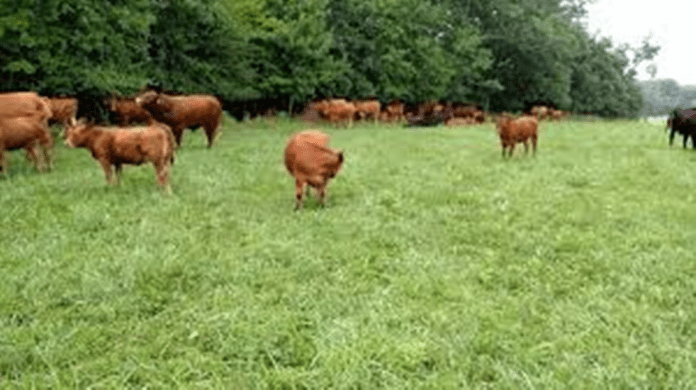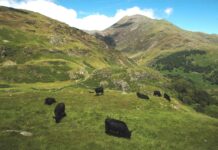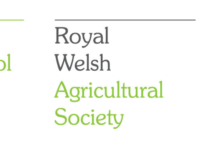An organic beef and sheep farm is getting more performance from grass since one of the partners embarked on a Farming Connect programme designed to help farmers become better grassland managers.
Phil Cowcher, who farms Penrhiw Farm, near Llandysul, with his parents, Tom and Eva, joined the Prosper from Pasture programme in 2017.
After completing the previous levels, he is now a member of the Advanced Plus Beef and Sheep group.
The programme is facilitated on behalf of Farming Connect by Precision Grazing and topics covered at the Advanced Plus level include financial benchmarking.
“Working out financial details such as profit per hour worked or profit per hectare (ha) has given me a better understanding of what makes a profitable sheep and beef farm” says Phil.
“This allows us to compare our performance to similar businesses, with the aim of identifying areas to improve.”
The ‘building block’ approach of the programme at different levels, starting with the basics (entry level) of understanding soil and grass biology, has helped Phil develop his grazing system.
The family have been farming organically since 2001, farming 200ha of owned, rented and share-farmed land.
The farm’s 80-cow Stabiliser herd, flock of 750 Highlander and Easycare ewes and 150 ewe lambs had been run on a loose rotational grazing system; stock were moved within a few days, depending on the size of fields.
Semi-permanent and temporary electric fencing is now used to create smaller paddocks, with stock moved within two days. This increases the stocking rate and reduces the concentrate requirements of the business.
The paddock sizes vary, depending on class of stock and mob sizes.
Groups of 150 ewes with twin lambs graze 1ha paddocks on two-day shifts up until weaning.
Cows and calves usually graze paddocks that have been grazed by ewes and lambs 24-30 days previously, to reduce worm burdens and improve utilisation.
Rotational grazing allows the grazing platform to be stocked at 15 ewes with twins/ha, up until weaning.
Phil admits rotational grazing requires more management and a bit more labour to set up fences but says this is easily offset by gains in the amount of grass grown and the increase in stocking rate.
“Since switching to a more intensive rotational grazing system, we have seen pasture composition and quality improving, without the need to reseed,” he says.
A new application window for Prosper from Pasture runs from October 26 to November 26. To be eligible to apply, applicants must have a recent Nutrient Management Plan and if they need assistance with this they are advised to contact their Farming Connect development officer.
Phil urges farmers in Wales to contact Farming Connect to apply.
Before events were suspended due to the pandemic, his group met on-farm for a meeting facilitated by Precision Grazing; meetings have continued via Zoom with the host farmer giving a virtual tour.
“The meetings are an opportunity to share ideas, problems and solutions with like-minded farmers, it is often the simplest ideas that make the most noticeable difference on farm, and there is the social aspect of being part of the group too,” says Phil.
Farming Connect, which is delivered by Menter a Busnes and Lantra, has received funding through the Welsh Government Rural Communities – Rural Development Programme 2014-2020, which is funded by the European Agricultural Fund for Rural Development and the Welsh Government.
Help keep news FREE for our readers
Supporting your local community newspaper/online news outlet is crucial now more than ever. If you believe in independent journalism, then consider making a valuable contribution by making a one-time or monthly donation. We operate in rural areas where providing unbiased news can be challenging. Read More About Supporting The West Wales Chronicle


























